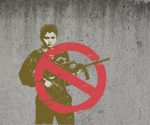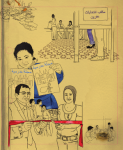Since 2023
The strength and credibility of the Syrian opposition and civil society depends to a large extent on its unity of content, its inclusiveness and its orientation towards internationally recognised human rights standards. In order to promote these aspects and thus social cohesion, we conduct study trips to ethnically and religiously diverse states and regions such as South Tyrol and Kosovo, initiate discussions between the various Kurdish actors in Syria, prepare studies on the situation of minorities in north-eastern Syria and publicise our activities and results via social media (Facebook, Instagram, YouTube), the website https://power-sharing-syria.ezks.org/ as well as in the context of face-to-face events.




